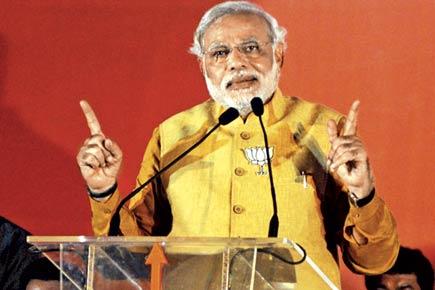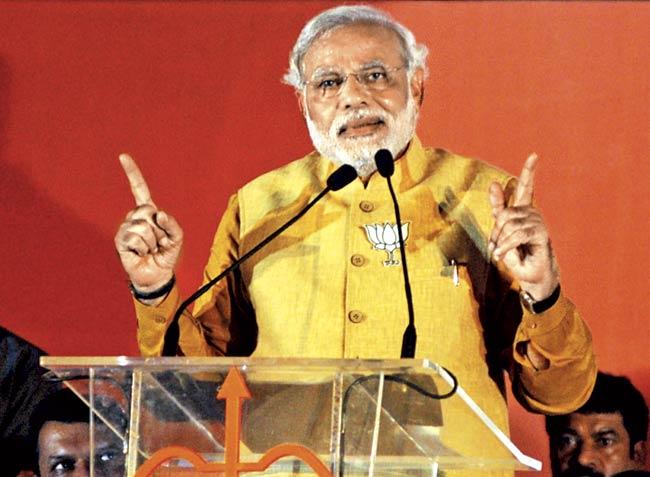Once, a man and his daughter were walking down the road. They saw a cow eating a plastic packet

 Once, a man and his daughter were walking down the road. They saw a cow eating a plastic packet. “See daughter,” said the man, “that proves that India is the best at recycling. Even the cows practice it.”
Once, a man and his daughter were walking down the road. They saw a cow eating a plastic packet. “See daughter,” said the man, “that proves that India is the best at recycling. Even the cows practice it.”
ADVERTISEMENT
Once, a woman was making chapattis. One got burnt. She said to her son, “See son, Indians are much greater than this chapatti. We are not burnt.”
Once, a king saw a beggar who did not have any shoes. He said to his courtiers, “See, this proves that India is great. I have shoes.”
Once, there was a state government, which believed that children’s lives could be improved by telling them ridiculous stories like this. The state government said that it was teaching children about the glory of Indian culture, which other people had hidden from them.

The books written by Dinanath Batra carry forwards written by the prime minister of India when he was still chief minister of Gujarat, telling us how inspiring Batra’s “literature” is. File pic
Actually, one should not laugh. By putting Dinanath Batra’s books on an advisory list, the Gujarat government is insulting both children and their parents. It is one thing to be proud of India, of Indian culture and even of Hinduism and Hindu culture. It is quite another to tell lies to children. The worst part is that these books carry forwards by the prime minister of India from when he was still chief minister of Gujarat telling us how inspiring Batra’s “literature” is. And Narendra Modi was stretching it in the larger sense of literary merit and Batra is stretching it when he refers to science and history.
Indeed, the story he tells about the late Dr Sarvepalli Radhakrishnan apparently comparing a burnt chapatti to a “Negro”, a pale chapatti to a Brit and the just-right chapatti to an India is nauseating. Someone from the former president’s family needs to confirm this tale. And then there’s the disservice to Swami Vivekananda quoted in these books, where the religious head of the Ramakrishna Mission compared an Englishwoman’s worth to being the same as his shoes. Perhaps the Mission can clarify?
Not only that, children who read this books will believe that cars, televisions and stem cell research were all invented in India’s days of ancient glory. Sadly, the evidence provided for these claims is very sparse. How does it help a science student to start life with such misconceptions? And why claim credit for work someone else has done when there is more than enough to be proud of as it is? But no. And so a retired principal of a college in Bhind and the author of several books on Vedic Science claims that evidence of the Higgs-Boson particle can be found in the Rig Veda. Move over CERN, here comes Bhind.
And there’s always Batra, he who scours through all books written about Indian history and culture to find mistakes particularly books written the scourges of humanity which includes anyone who is not a Hindutva Hindu, anyone who is a Marxist or a product of the TB Macaulay education policy of colonial India. But Batra never makes mistakes and therefore we must believe that cars were invented in the Vedas and stem cell research in the Mahabharata.
Whatever the hopes and aspirations that brought this new dispensation into power at the Centre, there was always a fear that the cultural agenda of the RSS and the Hindutva rightwing would make its presence felt. And indeed, this “cultural” face has appeared faster on the scene than anything to suggest “better days” promised in election speeches are on their way. The last time a BJP-led government was in power at the Centre, millions of rupees were spent looking for a “Saraswati Civilisation”. Whatever was found has been kept more secret than evidence of alien landings on Earth.
It is possible that Batra and the principal in Bhind really believe what they are saying. But that does not mean that their views have to be imposed on children especially when their theories are unsubstantiated and untested. By allowing these beliefs free reign, untold damage will be done to young impressionable minds. The argument offered in defence that these are not required texts but recommended reading is disingenuous, unless the books come with a warning that they are fiction.
There is no glory to Indian culture if you take children and parents for a ride to support your own insecurities.
Ranjona Banerji is a senior journalist. You can follow her on twitter @ranjona
 Subscribe today by clicking the link and stay updated with the latest news!" Click here!
Subscribe today by clicking the link and stay updated with the latest news!" Click here!






